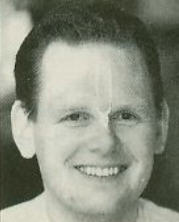
Sri Rama Dasa
SOCIOLOGY PROFESSOR Burke Rochford told me, "No religious movement has ever survived when it lost its second generation."
Srila Prabhupada had high expectations for ISKCON's second generation. He envisioned their taking roles of leadership in the movement. Yet if what he wanted is actually to happen, ISKCON must develop a clear path students can follow to become part of adult ISKCON society and so far the path has been rocky. We teach philosophy fairly well. But when, say, a fourteen-year-old student thinks about what he's going to do with it what sort of work or service he might take up as his future career ISKCON may seem to have little to offer. We're a long way from the occupational training Srila Prabhupada envisioned.
This educational gap (among our other shortcomings) leaves many of our young people feeling disconnected from ISKCON and often misunderstood and unwanted. Although ISKCON may be getting better at addressing their needs, if we're making progress we're making it slowly and kids grow up fast.
Some of our young people, therefore, have begun to organize themselves through newsletters and gurukula school reunions.
The events of the gurukula reunion in Los Angeles last August took everyone a bit by surprise. After the Rathayatra festival, large and small groups of devotees from ISKCON's first and second generations met to discuss the difficulties of growing up in ISKCON. Most exciting to me: When the talking was over, we had a program of action to benefit our whole society of devotees.
Gopi Dasi, a former gurukula student in her early twenties, tells of the details:
Project Future Hope
The day after Rathayatra, the North American ISKCON Board of Education met, and they asked members of the second generation, or gurukula alumni, to talk. No one on either side was prepared for the candidness of the speakers. The young people spoke from the heart. More important, the adults heard and began to understand exactly what it meant to be raised in an ISKCON gurukula. On the other hand, former students began to sense that ISKCON leaders were not impersonal or uncaring. Leaders admitted mistakes, apologized, and expressed a sincere desire to help. I don't think anyone was untouched after hearing the sincere expressions from all sides.
Far and away, Vaisnava Dasa's description of gurukula life and his vision of the future was the most moving. What echoes most in my mind are his words "I don't agree with the way the seeds of our training were planted, but they're there, and there's no way around it." What parent or student can't relate to that? Now we have to act.
Sri Rama Dasa later summed up his perceptions: "How do we make the best of things and move on to a better future? Since we lack much centralized structure right now, common sense seems to dictate we solve our problems person to person. Put open and intelligent adults and young people together, and the association will bridge the gaps."
Following the main meeting were two days of intense smaller meetings. We worked to find a way both generations could work together. This evolved into Project Future Hope, a system for connecting former gurukula students now potential apprentices and employees with devotee teachers and employers. Someone has given a computer, and a programmer is already organizing the personal networking the essence of Project Future Hope.
When I mentioned these meetings to some of my peers, I got the usual response: "Sure, but it's all talk. Nothing will come of it." We all grew up with some skepticism, and in a sense I feel it's healthy. I like to consider myself somewhat of a cynic. It keeps you on your toes.
So devotees of the first generation have quite a job convincing us of their sincerity. But some of them did in those few days in August. It's a first step down a long road.
Afterword (Sri Rama Dasa)
Many of our young people feel let down that their education was so short of the high ideal they were taught to expect. So I can appreciate the cynicism. But Project Future Hope is unique in that it's not one-sided. It's a joint venture of the Gurukula Alumni Association, the North American Board of Education, and the ISKCON GBC Board of Education. Bahulasva Dasa, aged twenty-two and head of the Gurukula Alumni Association, is chairman of the Project. Now members of both generations have decided to work together. Success or failure will be equally shared. Either way, we will grow closer.
If you would like to take part in Project Future Hope in any way, please write: Project Future Hope, Box 1126, Culver City, CA 90223.
Sri Rama is Chairman of ISKCON's Board of Education. His new address: Box 91, 125284 Moscow, Russia.
